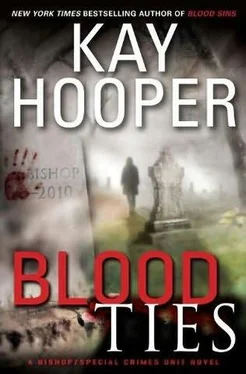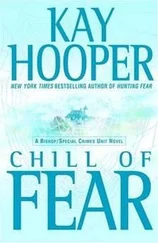“The only thing I can’t do until morning,” she told him without looking at him, “is talk to a first-shift deputy or other officer. Law enforcement is 24/7, Dale, or didn’t you know that?”
He grunted. “It took you ten minutes to find the right state bureau guy and get their list, and twenty to get the one from the cops two counties over. At this rate, you’ll be at it until midnight and still not get done.”
“The county doesn’t pay me to sit with my feet up and read magazines,” she told him. “If I’m still working on this when the next shift shows up and it’s time to clock out, so what? As long as I’m making progress—trying to make progress—then I’m doing my job.”
“I’m doing my job,” he said, mildly defensive. “I’m waiting to answer the phone. So far, it hasn’t been ringing much.” He got out of his chair and went to change the channel of the TV resting on a nearby filing cabinet, grumbling underneath his breath at the lack of a remote.
“Don’t turn on wrestling, please,” she said, still without looking at him.
“What do you care? You haven’t taken your eyes off that screen since you talked to the SBI guy.”
“I care because you get too caught up in the so-called action and end up yelling and throwing things at the screen. Find a nice cheerleader or beauty competition instead. You drool quietly.”
He threw a balled-up piece of paper at her.
Bobbie ducked, sent him a smile to indicate she was only kidding, and went back to her work. Not that she had a whole lot to work with . From the remains of both victims, only the barest of preliminary descriptions could be listed with any certainty—and height, weight, eye color, and probable hair color in the case of the female left things pretty damn vague.
The list Bobbie had painstakingly compiled from five hundred miles around Serenade now contained more than a hundred names of people reported missing and not yet found.
With so few specifics about their victims, Bobbie wasn’t about to try to narrow that list on her own. But what she could and did do was to include a brief profile on each of the missing men and women. Most of the details were in the reports she’d gathered from other law-enforcement agencies, so it was an easy—if tedious—matter to condense the information under simple categories: Height; Age; Weight; Coloring; Missing From; Missing Since; Reported Missing By; Criminal Record (it was almost always no under that category); Financial Problems; Unexplained Financial Transactions; Beneficiaries of Death .
That last one creeped Bobbie out, but it had to be noted, because at least half a dozen of the missing people carried hefty life-insurance policies left to spouses. Not so unusual, of course, but worth noting, in her opinion.
So Bobbie noted it. And noted all the other bits of information she had gathered. And then she put it all on a somewhat crude spreadsheet, hoping that something would help the far-more-experienced FBI agents identify the two poor souls whose remains had been found so horribly tortured and mangled.
And it wasn’t until just before midnight and the end of her shift, while barely aware of Dale yawning over a less-than-involving seventies-era sitcom, that Bobbie saw something unexpected. Very unexpected.
She rechecked all the information she had, bit her lip for a moment in indecision, then reached for the phone, hoping to find another second-shift cop in another quiet law-enforcement agency with time on his or her hands and the will to stay past this shift and dig just a little deeper.
“So nobody comes back from being lost in the gray time?” Hollis held her voice steady.
Diana shook her head. “Nobody, as far as I know. Because even if the body is kept alive on this side, the gray time really is a corridor between two realities. Nothing belonging to either side can exist in there indefinitely; the guides have told me that much. For us, from this side, the exhaustion becomes overwhelming, all our energy is drained away, and…”
“And?”
“And our spirits apparently pass on to whatever lies beyond the gray time. I’m told there’s peace to be found there. But I’m also told peace isn’t necessarily the destination for every soul.”
“So there is a hell,” DeMarco said, sounding thoughtful. “I’ve always wondered.”
Diana nodded a bit hesitantly. “I think so. At least it sounds that way, that something… unpleasant… is waiting for at least some spirits. Calling it hell is probably as good as anything else.”
Hollis said, “Let’s not get sidetracked by a philosophical—or theological—discussion, if you don’t mind. Not tonight, anyway. Diana, you’re basically telling me that if I got trapped in the gray time and couldn’t find my way out before the door closed, I’d be dead.”
“Afraid so.”
“And the door closes—how?”
Diana blinked. “You know, I haven’t really thought about it that way. Because there are doors in the gray time that seem literal, and they open or close without seeming to affect me.”
“Guess,” Hollis suggested.
“Okay.” She thought about it for a moment. “My guess is that if anyone of this world stays in the gray time too long or… somehow … wanders too deeply into the gray time, gets too far away from their physical self, then the door would close. The door we open as mediums. I suppose, thinking about it, that it’s less a door than a connection that gets severed—the connection between the body and the spirit. Cut that tie or have something cause it to snap, and… and it doesn’t get repaired. The spirit can’t return to the body.”
“Well, that doesn’t sound fun.” Hollis’s voice remained calm, even somewhat sardonic. But her eyes were wide and dark, and she continued to chew on her thumbnail—until DeMarco stepped away from the dresser, reached around to grasp her wrist, and with seeming gentleness pulled her hand down and away from her mouth.
Very interesting indeed , Diana thought, distracted again.
Hollis turned her head briefly toward him and said, “Leave me my vices, will you?” But her voice was still calm, and her hand remained in her lap where he had put it.
“That’s not a vice, it’s just a bad habit,” he said. “If you’re interested in vices, I’ll go find some booze. Don’t know about the rest of you, but I could use a drink.”
Diana shook her head. “Not me. After spending most of a lifetime medicated to the gills, I don’t drink.” As personal as the first part of that information was, she was completely aware that most if not all the other SCU agents knew at least some of her history. As Quentin had pointed out with a shrug, even stuff never said out loud was known when there were so many telepaths around.
Hollis laced her fingers together in her lap and said, “I’m so tired one drink would knock me on my ass. Diana, I hope you have a few tricks you can teach me to protect myself over there. But even if you don’t, stop blaming yourself, okay? It was my idea to go the first time. I can deal with the consequences. I’m a survivor.”
“She is that,” Quentin agreed. “More lives than a barrelful of cats, if you ask me.”
Diana wished that made her feel better. It didn’t.
Either seeing that or else pursuing a thought of his own, Quentin added, “And then there’s Reese. After tonight, I’m betting he could be Hollis’s lifeline and pull her out before she gets lost.”
“Happy to oblige,” DeMarco said.
“Let’s hope it isn’t necessary,” Hollis said without looking at him, her tone rather careless. “Anyway, at the moment I’m more interested in what happened after I was pulled out tonight. Why something in the gray time—presumably a spirit—tried to trick you, Diana. And what it was trying to trick you into doing. Or believing.”
Читать дальше











